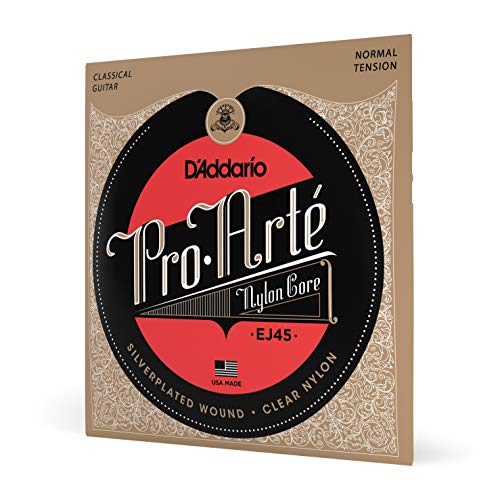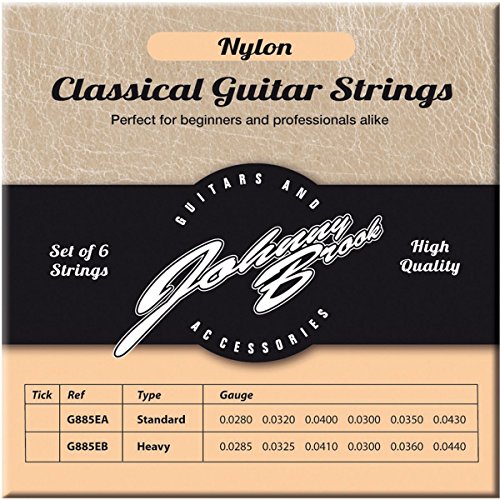Understanding the Basics of Classical Guitar Strings
What are Classical Guitar Strings?
Classical guitar strings are specially designed for nylon-string guitars, used primarily in classical music, flamenco, and other acoustic genres. They are made of nylon or a silver-plated wound material that creates a warm and mellow tone. Unlike steel strings commonly found on acoustic or electric guitars, these strings offer a softer feel and are easier on the fingers, making them ideal for beginners and experienced players alike.
The Role of Strings in Sound Quality
The strings we choose can dramatically affect the sound quality of our guitar. Different materials produce varying tonal richness. For instance, nylon strings are known for their bright, clear sound, while wound strings (nylon wrapped with metal) add depth and volume, making them suitable for performance or recording situations. Understanding how these materials contribute to sound will help us select strings that enhance our playing experience.
Types of Strings: Nylon vs. Composite Materials
Nylon Strings
Nylon strings are traditional for classical guitars, providing a smooth, warm tone that suits the nuances of classical music. These strings typically come in different tensions (low, medium, and high), allowing us to choose based on our playing style. Low tension strings offer more flexibility and are easier to play, while high tension strings provide more volume and projection but require more finger strength.
Composite Strings
Composite strings, often made from a blend of nylon and other materials, have become popular for their durability and diverse tonal qualities. These strings can mimic the sound of traditional nylon while providing resistance against wear and tear. They come in various formulations that may enhance brightness or reduce finger noise, catering to different musical preferences and playing climates.
Choosing the Right String Gauge for Your Playing Style
Understanding String Gauge
String gauge refers to the thickness of the strings. Lighter gauges (typically around .028 to .032 for the treble strings) are easier to press down and bend, making them great for beginners or styles that require more fretting and vibrato. In contrast, heavier gauges (like .034 to .040) yield a fuller sound and sustain but require more finger strength to play.
Matching Gauge to Skill Level
If we’re new to the guitar, starting with a light gauge can help build confidence and technique without causing finger fatigue. As our skills advance and if we desire a richer tone, we might consider moving up to a medium or even a heavy gauge set. Ultimately, the choice depends on our preferred playing style and comfort level.
Top Recommendations: Our Best Classical Guitar Strings
Recommended Nylon Strings
For a well-rounded choice, we recommend strings like D’Addario ProArte Nylon strings which balance quality and affordability, offering a warm sound that suits beginners and pros alike. For an enhanced warmth and projection, Savarez strings are renowned and deliver a beautiful tone ideal for classical performances. If we’d like to explore composite options, D’Addario Carbon strings provide great brightness and clarity.
Ideal Choices for Performance
For stage performances, we suggest using an extra hard tension string set, as they can produce a louder, more resonant sound, making it easier for the music to carry in a live setting. For these sessions, we might consider the La Bella 2001 series which are designed for durability and excellent tonal quality, ensuring we perform our best.
Caring for Your Strings: Tips for Longevity and Performance
Clean Regularly
To maintain the quality of our strings, regular cleaning is essential. After playing, we can simply wipe them down with a soft cloth to remove oils and dirt, which extend their lifespan and keep them sounding fresh. This simple practice can help us avoid premature string breakage, especially if we play frequently.
Understanding the Environment
Our strings can also be affected by the environment. Changes in humidity and temperature can cause strings to deteriorate faster. We should store our guitar in a stable environment, and consider using a humidifier in dry conditions to prevent our strings from drying out and becoming brittle. Keeping an eye on our strings and changing them when they start to sound dull will keep our instrument sounding its best.

































